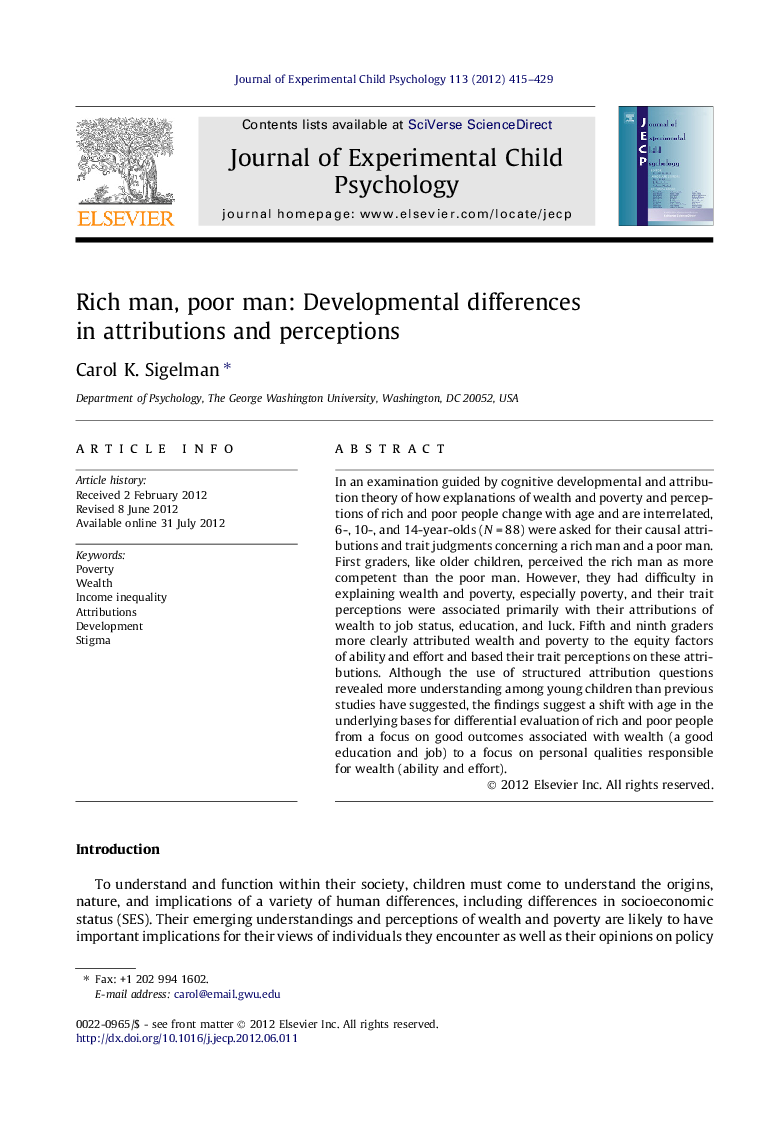| کد مقاله | کد نشریه | سال انتشار | مقاله انگلیسی | نسخه تمام متن |
|---|---|---|---|---|
| 918260 | 919466 | 2012 | 15 صفحه PDF | دانلود رایگان |

In an examination guided by cognitive developmental and attribution theory of how explanations of wealth and poverty and perceptions of rich and poor people change with age and are interrelated, 6-, 10-, and 14-year-olds (N = 88) were asked for their causal attributions and trait judgments concerning a rich man and a poor man. First graders, like older children, perceived the rich man as more competent than the poor man. However, they had difficulty in explaining wealth and poverty, especially poverty, and their trait perceptions were associated primarily with their attributions of wealth to job status, education, and luck. Fifth and ninth graders more clearly attributed wealth and poverty to the equity factors of ability and effort and based their trait perceptions on these attributions. Although the use of structured attribution questions revealed more understanding among young children than previous studies have suggested, the findings suggest a shift with age in the underlying bases for differential evaluation of rich and poor people from a focus on good outcomes associated with wealth (a good education and job) to a focus on personal qualities responsible for wealth (ability and effort).
► Like older children, 6-year-olds saw a rich man as highly competent.
► However, they had difficulty explaining wealth and poverty.
► They focused on correlated good outcomes: education, employment, and wealth.
► Older children focused on personal traits responsible for good outcomes.
Journal: Journal of Experimental Child Psychology - Volume 113, Issue 3, November 2012, Pages 415–429